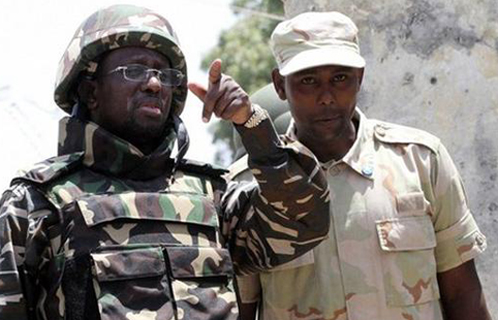Somali Jihadists Skewed Focus on Women Sports
While Al Qaeda is projecting a kinder, gentler image by distributing aid to famine victims, its local Somali affiliate, the Al Shabab, are ensuring strict adherence to a five-year old ban on women’s sports.The emphasis on women constitutes an expanded enforcement of the Shabab’s extreme interpretation of Quranic guidelines on sports that in recent years focused primarily on efforts to ban soccer for men as well as women.
The Shabab focus not only contrasts with Al Qaeda’s effort to project a different image after having lost much of its appeal with its attacks on Arab residential compounds and luxury hotels in the first half of the last decade and being even more sidelined by this year’s Arab revolt sweeping the Middle East and North Africa.
It also highlights differing attitudes with Al Qaeda and other militant Islamist groups such as Palestine’s Hamas and Lebanon’s Hezbollah with regard to the importance and the role of sports in Islamist ideology and strategy.
AL Qaeda and Al Shabab represent two sides of militant Islam’s love-hate relationship with ball games. Soccer doesn’t fit into Al Shabab or, for that matter, the Taliban’s vision of an Islamist society. Soccer distracts the faithful from worshipping Allah, competes with the militants for recruits and lends credence to national borders at the expense of pan-Islamist aspirations for the return of the Caliph who would rule the world’s 1.5 billion Muslims as one. It also celebrates peaceful competition and undermines the narrative of an inevitable clash of civilizations between Islam and the West.
Nonetheless, in a break with its indiscriminate shedding of bloodhuman life, Al Qaeda recently sent a representative to a camp of Somali refugees fleeing the famine in their tortured country to distribute humanitarian aid.
As a result, Al Qaeda’s distribution of aid throws into sharp relief, Al Shabab’s refusal to allow Western air groups to help alleviate suffering and its effort instead to ensure adherence to its strict precepts that not only ban women’s sports, but soccer for men as well as women as well as bras and music.
Speaking in American-accented English, Mr. Al Muhajir said the aid had been purchased by “brothers in Al Qaeda” who although separated from the refugees by thousands of kilometres had them “consistently in our thoughts and prayers.”
Initially an armed wing of the courts, the Shabab emerged as a force in their own right with the US-backed Ethiopian invasion that forced the courts out of power.
Somali national women’s basketball team captain Suweys Ali Jama is one of their favourite targets. “I will only die when my life runs out – no one can kill me but Allah … I will never stop my profession while I am still alive. Now, I am a player, but even if I retire I hope to be a coach – I will stop basketball only when I perish,” Ms. Jama recently told InterPress Service (
Ms. Mohammed, according to IPS, quotes the Shabab as telling her: “You are twice guilty. First, you are a woman and you are playing sports, which the Islamic rule has banned. Second, you are representing the military club who are puppets for the infidels. So we are targeting you wherever you are.”
Together with the national soccer team, Ms. Jama and Ms. Mohammed’s basketball team trains behind the bullet-ridden walls surrounding the Somali police academy. Dressed in loose fitting tracksuits, T-shirts and headscarves, women players sprint across the court in the presence of hundreds of policemen. They leave the academy covered to return home from training as a safety measure.
Somali Basketball Federation president Hussein Ibrahim Ali argues that his national women’s team plays for much more than a trophy when it competes internationally.
“The world knows that Somalia has undergone hardships. When our women play internationally, it is great publicity for the whole country and, in particular, for the basketball federation,” Mr Ali said.
James M. Dorsey is a senior fellow at the S. Rajaratnam School of International Studies at Singapore’s Nanyang Technological University and the author of the blog, The Turbulent World of Middle East Soccer.




You must be logged in to post a comment Login